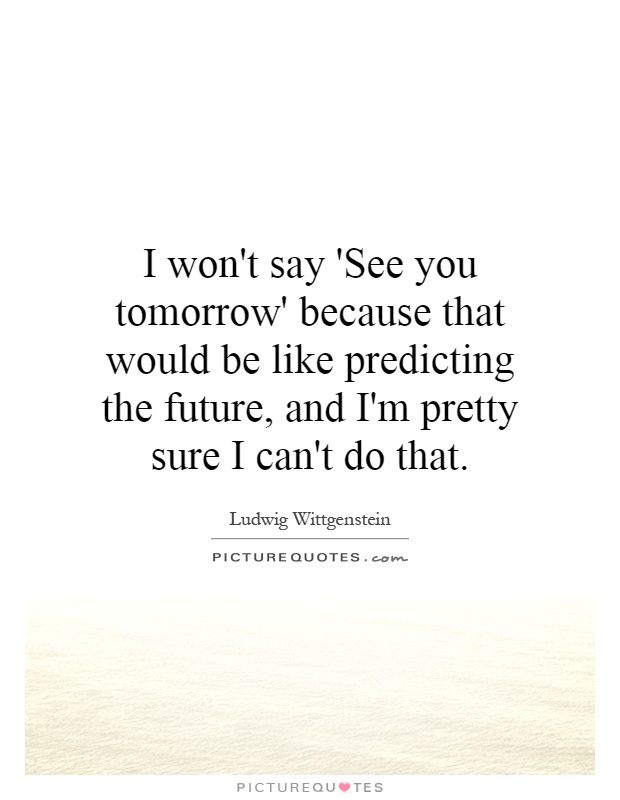I won't say 'See you tomorrow' because that would be like predicting the future, and I'm pretty sure I can't do that

I won't say 'See you tomorrow' because that would be like predicting the future, and I'm pretty sure I can't do that
Ludwig Wittgenstein, a renowned Austrian-British philosopher, is known for his work in logic, the philosophy of language, and the philosophy of mind. His ideas have had a profound impact on the fields of philosophy and linguistics, and his influence can still be felt today. One of Wittgenstein's key contributions to philosophy is his emphasis on the limitations of language and the ways in which it can shape our understanding of the world.The quote "I won't say 'See you tomorrow' because that would be like predicting the future, and I'm pretty sure I can't do that" can be seen as a reflection of Wittgenstein's views on language and its relationship to reality. Wittgenstein believed that language is not simply a tool for communication, but also a way of structuring our thoughts and perceptions of the world. In this sense, making predictions about the future, such as saying "See you tomorrow," involves a certain level of certainty and confidence in our ability to know what will happen next.
However, Wittgenstein was skeptical of the idea that language could accurately represent reality or predict future events. He argued that language is inherently limited and that our understanding of the world is shaped by the ways in which we use language to describe it. In this sense, making predictions about the future, such as saying "See you tomorrow," is an act of projecting our own assumptions and expectations onto the world, rather than accurately predicting what will actually happen.
Wittgenstein's emphasis on the limitations of language and the ways in which it can shape our understanding of reality can be seen as a caution against making overly confident predictions about the future. By acknowledging the inherent uncertainty and ambiguity of language, we can become more aware of the ways in which our words and thoughts are influenced by our own biases and assumptions. In this sense, the quote "I won't say 'See you tomorrow' because that would be like predicting the future, and I'm pretty sure I can't do that" can be seen as a reminder of the complexities of language and the ways in which it can shape our perceptions of the world.












 Friendship Quotes
Friendship Quotes Love Quotes
Love Quotes Life Quotes
Life Quotes Funny Quotes
Funny Quotes Motivational Quotes
Motivational Quotes Inspirational Quotes
Inspirational Quotes